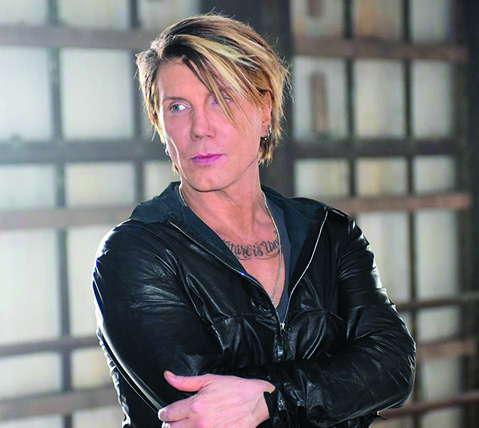Interview with a Goo Goo Doll
Johnny Rzeznik Talks Longevity, Sobriety, and the Past

They never expected to last this long, but three decades after their formation, Buffalo’s Goo Goo Dolls will headline the S.B. Bowl with guests Collective Soul and Tribe Society on Saturday, July 16. Since their breakout hit “Name” charted in 1995, they’ve become one of the biggest and long-standing names in alternative rock. I spoke with lead singer Johnny Rzeznik about how he and bassist Robby Takac have kept a Goo thing going for so long.
You guys have been doing this for decades. Does it feel different now than it did when you started?
Yeah, very much so. It feels like we’re doing it for ourselves more than it has in a long time. I always sort of relate it to us listening to the mixes in the studio in L.A., saying, “Dude, we won! We won!” It didn’t matter if we sold 30 copies; we won because we persevered and we did the work, and how many guys from our generation can still do it and still do the work? It’s not that they’re not good — how come we still get the opportunity? That’s what blows my mind.
What would you credit to your longevity and endurance?
I really honestly gotta think a lot of it is growing up in Buffalo and having that very sort of blue-collar work ethic that was instilled in us. You don’t quit; you never quit, you know? The only way you fail is if you quit. That has always sort of been pounded into my head.
I’m curious about your new song, “Souls in the Machine.” Can you tell me about the inspiration behind that one?
I’m one of these guys who always feel like the outsider, you know? I’m always longing to be part of something, you know? And that song was definitely me going, “Hey, let me in!” And it was also sort of a comment on the music business. People tend to forget that this is a content-driven business, and the soul of this business is the people who create. Without people who create, there is no business. It really saddens me to see the creative people get shit on again, and there’s nothing new about it.
You’ve been pretty emotionally revealing on some songs, like “Broadway.” In the new one, you seem to be finding strength in admitting your vulnerabilities and moving past them…
Yeah, that’s sort of the paradox, right? If you’re really gonna live, you have to be vulnerable. If you’re gonna be strong, you have to take the risk. If you don’t have the balls to take the risk, the nature of life is being vulnerable enough to touch it, to feel it, to be present for it. I wasn’t present for my own life for a long time. I wasn’t there; I wasn’t in my relationships; I wasn’t in my band; I wasn’t in my soul — I was disconnected from all of it. I would let myself live in a miserable situation forever, mostly of my own making. I made my own misery and made the people around me miserable. I created a surplus of misery, and I decided I was gonna get my shit together and clean up my house, metaphorically speaking, and then things started to click again. It’s fucking scary to be alive, and it’s scary to be a grown-up, but man, it feels really good.
How do you feel about your ’90s output and it being the main thing people remember you for?
I’m okay with it. I think that was the apex of our commercial arc. That was the peak of our sort of curb, and everybody looks at the biggest commercial period and automatically thinks that was the best. We’ve never been the huge band. We’ve never been the biggest band ever in our career, and I’m fine with that, you know? But here we are 30 years later, and we’re able to make a living, and we’re still making albums and still touring. I can count on one hand the number of bands that can still do that, and I feel incredibly blessed and lucky.
4∙1∙1
The Goo Goo Dolls play the S.B. Bowl (1122 N. Milpas St.) on Saturday, July 16, at 6:30 p.m. with Collective Soul and Tribe Society. Call (805) 962-7411 or see sbbowl.com.



